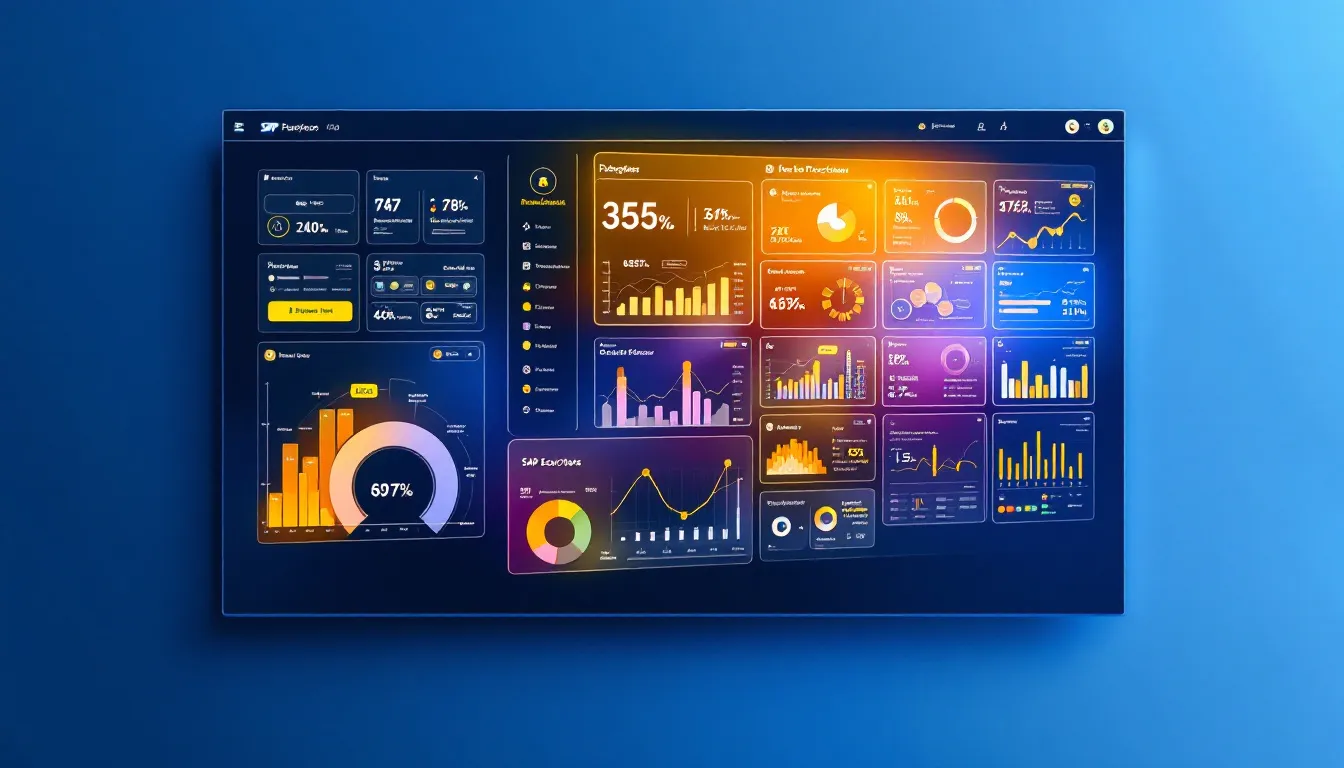
SAP Tools For Data Management
Introduction
Data management is a critical aspect of modern business operations, enabling organizations to harness the power of their data effectively. SAP offers a robust suite of tools designed to facilitate data integration, quality, governance, and analytics. By utilizing these tools, businesses can ensure data accuracy, enhance decision-making processes, and maintain compliance. This overview highlights the top 10 SAP tools for data management, illustrating how they can empower organizations to achieve their data-driven goals. Aspiring professionals can join the SAP Institute in Delhi for the best guidance.
All About SAP Data Management
SAP Data Management refers to the systematic administration, organization, and governance of data within SAP environments, encompassing various tools and practices aimed at ensuring data quality, consistency, and accessibility across an organization. It plays a vital role in supporting business processes and enabling informed decision-making.
Key Components of SAP Data Management:
- Data Governance: This involves defining data policies, standards, and procedures to ensure data accuracy and compliance with regulations. SAP offers solutions like SAP Information Steward to help organizations monitor data quality and enforce data governance.
- Data Integration: SAP provides various tools for integrating data from multiple sources. SAP Data Services and SAP Integration Suite facilitate the extraction, transformation, and loading (ETL) of data, enabling seamless data flow between different systems.
- Data Quality Management: Ensuring high data quality is critical for effective decision-making. SAP solutions include data profiling, cleansing, and monitoring capabilities to identify and rectify data issues. SAP Information Steward helps in assessing data quality metrics and provides insights for improvement.
- Master Data Management (MDM): MDM involves managing key business entities, such as customers, suppliers, and products, to ensure consistency across various systems. SAP Master Data Governance (MDG) provides a centralized platform for managing master data and automating workflows for data maintenance.
- Data Warehousing: SAP BW (Business Warehouse) is a powerful data warehousing solution that enables organizations to consolidate data from various sources, perform complex analytics, and generate reports. With SAP BW/4HANA, organizations can leverage advanced analytics and real-time data processing. Check the SAP Course in Gurgaon to learn more.
- Big Data Management: SAP HANA supports the processing of large volumes of structured and unstructured data. By integrating with technologies like Hadoop, SAP provides a comprehensive solution for big data management, enabling businesses to derive insights from diverse data sets.
Thus, effective SAP Data Management ensures that organizations can leverage their data assets to drive strategic initiatives and improve operational efficiency. By integrating governance, quality management, and analytics, businesses can achieve a competitive edge in today’s data-driven landscape. As organizations increasingly rely on data to make informed decisions, mastering SAP Data Management becomes essential for success.
Top 10 SAP Tools For Data Management
Data management is crucial for organizations to ensure data integrity, accessibility, and compliance. SAP provides a comprehensive suite of tools designed to facilitate effective data management.
Here are the top 10 SAP tools for data management.
- SAP Data Services: This ETL tool helps organizations extract, transform, and load data from various sources. It offers data integration, cleansing, and profiling capabilities, ensuring high data quality and consistency across systems.
- SAP Information Steward: This tool focuses on data governance and quality management. It provides data profiling, monitoring, and metadata management features, allowing organizations to maintain data accuracy and compliance.
- SAP Master Data Governance (MDG): MDG is designed to manage master data across the enterprise. It ensures that critical business data, such as customer and supplier information, is consistent, accurate, and up-to-date across all systems.
- SAP HANA: As an in-memory database, SAP HANA enables real-time data processing and analytics. Its capabilities allow organizations to manage large volumes of structured and unstructured data efficiently.
- SAP BW/4HANA: This data warehousing solution consolidates data from various sources, allowing for complex analytics and reporting. It leverages the power of SAP HANA for faster data retrieval and analysis.
- SAP Analytics Cloud: This tool combines business intelligence, planning, and predictive analytics in one solution. It allows users to visualize data, create reports, and gain insights into business performance.
- SAP Data Hub: SAP Data Hub is a comprehensive data orchestration tool that facilitates the integration and management of data from diverse sources, including on-premises and cloud environments.
- SAP BusinessObjects: This suite of reporting and analysis tools enables organizations to create reports and dashboards from their SAP and non-SAP data sources, enhancing data visibility and decision-making.
- SAP Cloud Platform: This platform offers various services for data integration, application development, and data management, allowing businesses to build and extend applications in the cloud.
- SAP Data Intelligence: This tool provides an integrated data management solution for connecting, discovering, enriching, and orchestrating disjointed data assets across various systems, enabling organizations to derive value from their data.
These SAP tools collectively enhance data governance, integration, quality, and analytics, empowering organizations to manage their data more effectively and derive meaningful insights for strategic decision-making. As businesses continue to recognize the importance of data in driving performance, utilizing these tools becomes increasingly essential for success. Furthermore, aspiring SAP professionals can join the SAP Course for the best opportunities in this field.
Conclusion
In summary, leveraging SAP tools for data management is essential for organizations seeking to enhance data quality, governance, and analytics. With solutions like SAP Data Services, HANA, and Master Data Governance, businesses can streamline their data processes. It ensures accuracy and makes informed decisions. Moreover, by effectively managing their data assets, organizations can achieve operational excellence, drive strategic initiatives, and maintain a competitive edge in today’s data-driven landscape.





Leave Your Comment